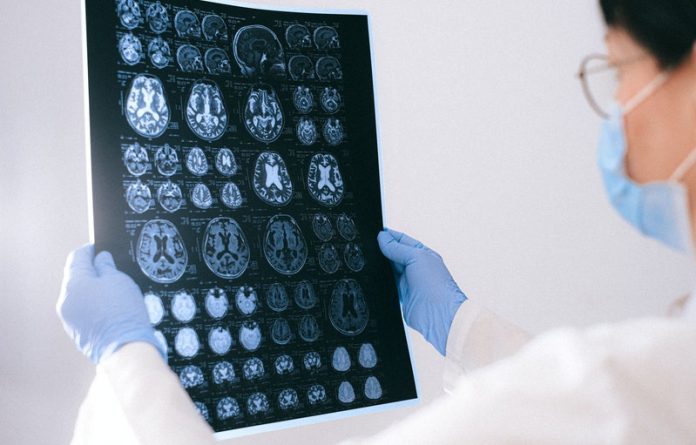
Scientists from the University of Manchester found a drug already used to treat high blood pressure could be re-purposed as the first treatment to tackle a type of vascular dementia caused by damaged and ‘leaky’ small blood vessels in the brain.
The research was published in the Journal of Clinical Investigation and was conducted by Dr. Adam Greenstein et al.
High blood pressure is known to be the main risk factor for developing vascular dementia.
However, the way that high blood pressure damages the small blood vessels, causing them to narrow and restrict blood flow to specific areas of the brain, has been unknown.
The effectiveness of different types of blood pressure medication on these arteries has also never been directly tested.
In the study, the team discovered that the blood pressure drug amlodipine could help treat vascular dementia or stop it in the early stages.
They looked at blood flow in the brains of mice with high blood pressure and vascular damage in the brain. Mice treated with amlodipine had better blood flow to more active areas of the brain.
Their arteries were able to widen, allowing more oxygen and nutrients to reach the parts of the brain that needed it most.
The team also discovered for the first time that high blood pressure decreases the activity of a protein called Kir2.1 that is present in cells lining the blood vessels and increases blood flow to active areas of the brain.
Amlodipine was found to restore the activity of Kir2.1 and protect the brain from the harmful effects of high blood pressure.
Researchers say that this protein could also be targeted by other drugs in the future, presenting a potential additional way to help fight the disease.
The team now hopes to trial amlodipine as an effective treatment for vascular dementia in humans.
If successful, it would be the first clinically proven treatment for vascular dementia as a result of small vessel disease and could be used in those with early signs of the condition to prevent further progression.
For more information about brain health, please see recent studies that Mid-life heart disease prevention may prevent later dementia, and results showing nightly sleep of 5 hours, or less, may increase the risk of dementia.
Copyright © 2022 Knowridge Science Report. All rights reserved.



